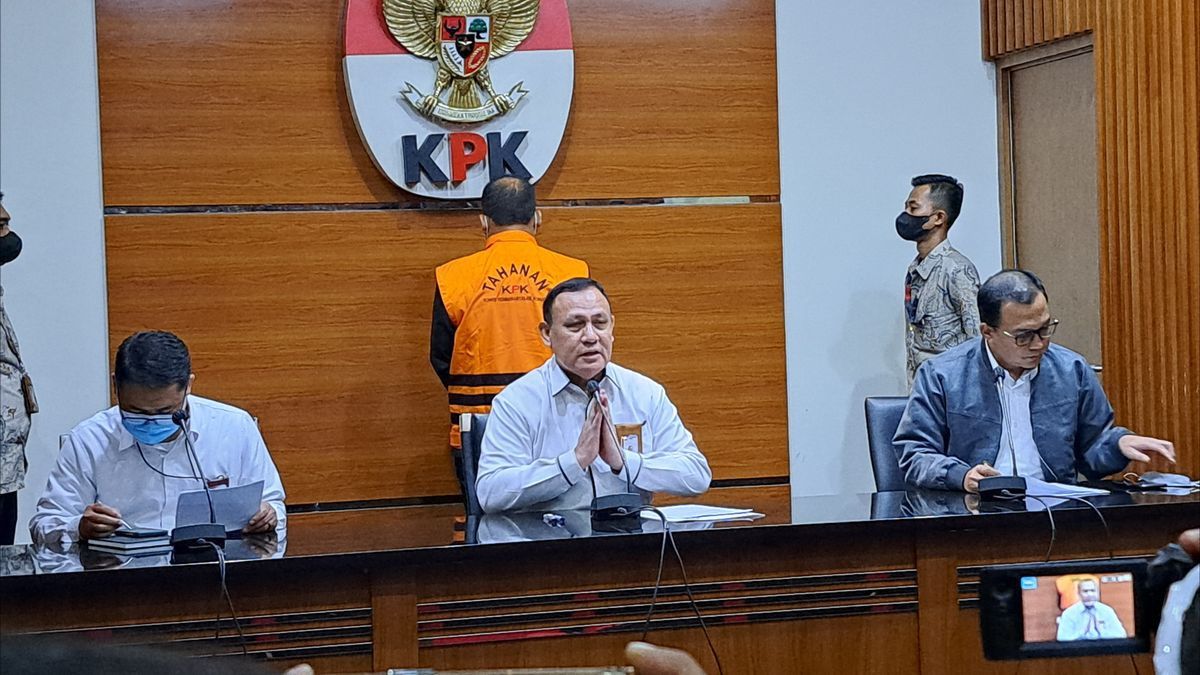The Corruption Eradication Commission (KPK) has confirmed that it will thoroughly investigate the alleged bribery handling of cases at the Supreme Court (MA). This investigation was carried out to provide legal certainty for the perpetrators.
This was conveyed by KPK Chairman Firli Bahuri after determining and detaining Yustitial Judge Edy Wibowo on Monday, December 19. He said his party was committed to investigating the alleged bribery that had ensnared 14 suspects.
"KPK is committed to completing every case development, so that law enforcement of corruption can be carried out completely, effectively, and efficiently. So that it immediately provides legal certainty for the perpetrators," Firli said as quoted from the Presidential Secretariat's YouTube show, Tuesday, December 20.
Firli said corruption in the judicial sector could not be tolerated. This rasuah practice is considered to pollute the Supreme Court.
A number of preventive measures will be taken, including conducting studies. "Corruption in the judicial sector has injured the dignity of law enforcement in Indonesia, so the KPK does not stop only on prosecution efforts," he said.
"KPK continues to make prevention efforts through studies and education through anti-corruption briefings for law enforcers," Firli continued.
As previously reported, Supreme Court Judicial Judge Edy Wibowo has been named a suspect in receiving bribes. He is suspected of receiving Rp3.7 billion in cash.
The money was given to decide so that the hospital would not be declared bankrupt. The award was made through civil servants at the Supreme Court, Muhajir Habibie and Albasari and carried out in stages.
As a result of his actions, Edy together with Muhajir Habibie and Albasari were suspected of violating Article 12 letter c or Article 12 letter a and b in conjunction with Article 11 of Law Number 31 of 1999 concerning Eradication of Criminal Acts of Corruption as amended by Law Number 20 of 2001 concerning Amendments to Law Number 31 of 1999 concerning Eradication of Criminal Acts of Corruption in conjunction with Article 55 paragraph (1) to 1 of the Criminal Code.
The English, Chinese, Japanese, Arabic, and French versions are automatically generated by the AI. So there may still be inaccuracies in translating, please always see Indonesian as our main language. (system supported by DigitalSiber.id)








